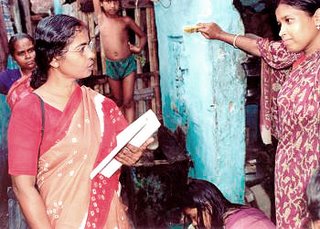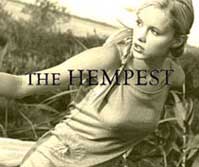Birth of a salesman
 Long gone are the days when door-to-door salesmen plied their trade on American streets. New ways of doing business have emerged: mega shopping centers, fashionable urban town centers and of course, Home Shopping Network and the internet have all changed the way Americans buy. But that doesn't mean that business has given up on the tried and proven old model that produced such giants as The Fuller Brush Co., Mary Kay, and venerable Sears and Roebuck.
Long gone are the days when door-to-door salesmen plied their trade on American streets. New ways of doing business have emerged: mega shopping centers, fashionable urban town centers and of course, Home Shopping Network and the internet have all changed the way Americans buy. But that doesn't mean that business has given up on the tried and proven old model that produced such giants as The Fuller Brush Co., Mary Kay, and venerable Sears and Roebuck.Recently, Unilever , formerly Lever Brothers, pondered D2D sales in light of the emerging new market landscape and decided, not surprisingly, that opportunity is where you make it. Their new business model, rural India, where the annual household income amounts to less than $27 U.S. per month or about $300 per year and where two-thirds of India’s 1.1-billion inhabitants now live, is Unilever's newest door-to-door opportunity.
Rural India, with its rapidly expanding population and nearly nonexistent services infrastructure epitomized by open sewer systems, dearth of public schools and sporadic electrical grid; a countryside, predominantly agricultural with an annual population growth rate second only to China would seem a less than shiny new market frontier to a business like Unilever, but, not so. Just under the surface of India's impoverished landscape lies the fundamental, universal truism of commerce: markets follow customers and India is on the verge of becoming the largest new consumer market of the 21st century.
Reasoning that their product line: basic household items like Lifebuoy Soap, shampoo and Pepsodent Toothpaste would be well received by rural Indian households, Hindustan Lever began recruiting young married women, mostly illiterate and poor, to sell their products in villages throughout rural India that were either too impoverished or too remote to warrant a more traditional distribution system.
Starting in late 2000, Unilever has extended its sales force reach into 80,000 of India's more than 638,000 remote villages. The women typically earn between $16 and $22 a month, doubling their household income and, more importantly, spreading both the desire for such products and the ability to pay for them.
The bottom line may be survival for an old-line manufacture of consumer goods but we find that the real upside is in recognizing that market driven solutions, replayed, can have a positive effect for socio-economic empowerment throughout the world.
by Harlan Weikle
Greener Magazine



1:18 PM









<< Home